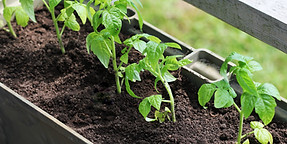
sustainable and resilient food systems
“The required increase in food production can be achieved if the necessary investment is undertaken. [...] The world has the resources and technology to eradicate hunger.”
Food and Agriculture Organisation¹
investment areas
Our Systems-Based Investment approach considers the entire food production, processing, distribution, consumption and waste value chain.
BreakTHROUGH OPPORTUNITIES
Drashta unlocks access to game-changing solutions.

Pioneering biotech solutions
A cutting-edge RNA platform producing a low-cost alternative to harmful pesticides.

Innovative animal-free dairy
A disruptive food-tech company offering dairy products based on in-house microflora fermentation, with significantly lower energy, water and carbon footprints compared to traditional methods.

High-tech vertical farming
A community-focused firm leveraging expert knowledge, data and infrastructure to develop and support large-scale vertical farming systems, improving climate and supply-chain resilience.
IMPACT
Investing in Sustainable and Resilient Food Systems contributes towards 7 of the Sustainable Development Goals:
Hunger and malnutrition exacerbate poverty by increasing school and work absenteeism from disease and ill health.

Smart agriculture techniques help increase farming yields, while alternative nutrition solutions offer cheaper and more accessible sources of good nutrition.

Improving food intake and quality through sustainable and resilient food systems will significantly decrease malnutrition-related diseases.

Since women and girls are disproportionately affected by poor household nutrition, increasing access to quality food helps address gender inequalities.

Developing food production and processing techniques that require less water will relieve pressure on stressed water supplies, and help ensure water security for all.

Smart agriculture offers farmers the chance to save costs and increase yields, while climate-smart production processes offer resilience and job security in the face of climate effects.

Smart agriculture techniques and plant-based alternatives to meat help reduce global energy consumption and carbon emissions.





